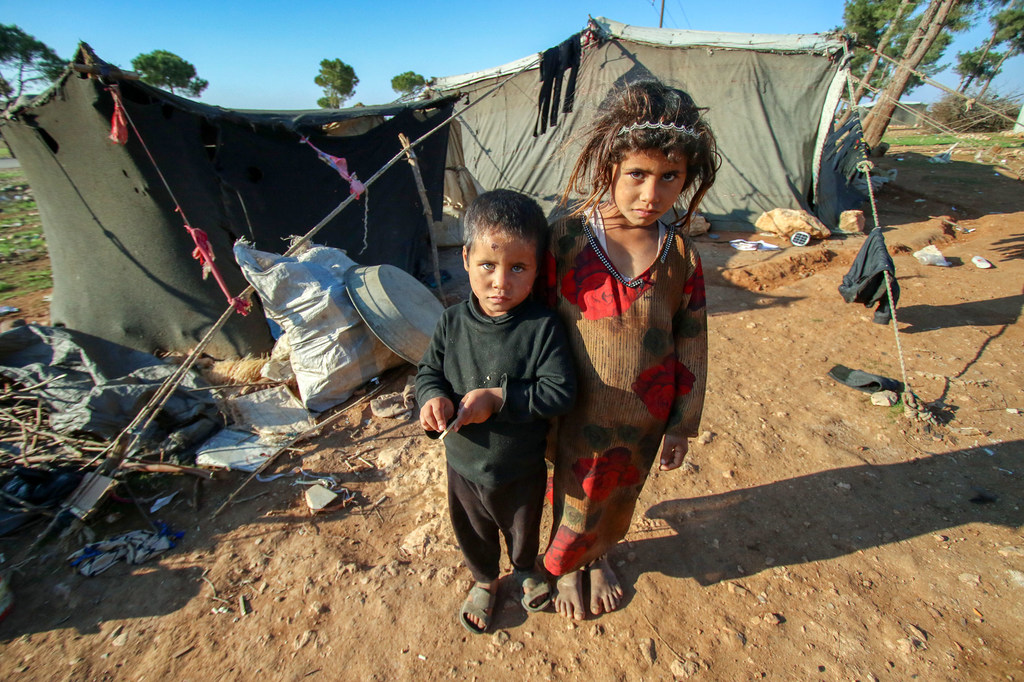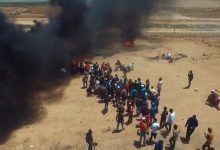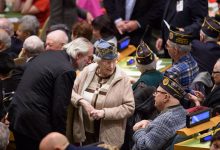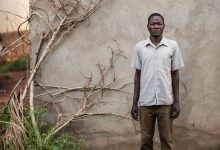Gamba ‘deeply concerned’ over COVID impact on children caught in conflict
 Child rights must be considered in measures designed to contain coronavirus spread, the UN’s advocate for boys and girls caught in armed conflict said on Wednesday in an appeal to Member States.
Child rights must be considered in measures designed to contain coronavirus spread, the UN’s advocate for boys and girls caught in armed conflict said on Wednesday in an appeal to Member States.
Special Representative Virginia Gamba presented her latest report to the UN Human Rights Council, which shows COVID-19 response has made these children more vulnerable to grave violations.
Their rights to education and health, and access to justice, social services and humanitarian aid, have also been restricted.
“I am deeply concerned about the adverse impact of the COVID-19 pandemic on children affected by armed conflict”, she said, urging countries to ensure that child protection services can continue during the crisis.
No military use of schools
Ms. Gamba also stressed the need for warring parties to respect schools and health facilities, and the people who work in them.
“The military use of schools can never be justified, including when buildings are temporarily closed due to lockdowns, particularly in countries with fragile education systems where education is a scarce commodity”, she emphasized.
The report further revealed that although children are disproportionately affected by conflict, they are sidelined in transitional justice processes.
This is occurring even though the Convention on the Rights of the Child, the most ratified human rights treaty in history, includes an Optional Protocol (OPAC) to protect boys and girls from recruitment and use in hostilities.
Grave violations are preventable
Ms. Gamba said children must be included in transitional justice processes as their participation is critical to breaking intergenerational cycles of violence and preventing future violations.
“Grave violations of children’s rights are not inevitable by-products of war: they are preventable”, she added.
“I call upon Member States that have not done so, to become a party to the OPAC and to enact national legislation and policies to prohibit and criminalize the recruitment and use of children by armed forces and armed groups.”
The UN Special Representatives also urged all parties to conflict to endorse the Secretary-General’s appeal for a global ceasefire during the pandemic.
“As the vulnerability of boys and girls living amidst hostilities is exacerbated by the COVID-19 pandemic, processes such as ceasefires, peace negotiations, and security sector reform are opportunities to protect children,” she said.
Action and engagement
Her report also showcased progress to end and prevent grave violations against children.
Key achievements in 2020 included a Child Protection Code in the Central African Republic which criminalizes recruitment and upholds that children associated with armed groups are to be considered as victims. In Myanmar, the UN signed a Joint Action Plan with the Democratic Karen Benevolent Army, marking a first for armed groups in the country.
Ongoing UN engagement, supported by the Special Representative for Children and Armed Conflict, also led to the release of children by parties to conflict in Myanmar and in other countries such as the Democratic Republic of the Congo, Somalia, Syria and Yemen.



